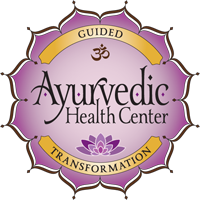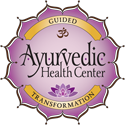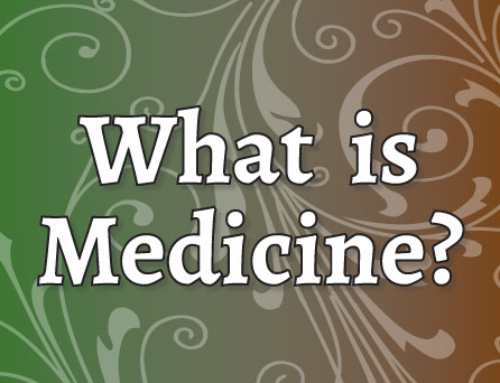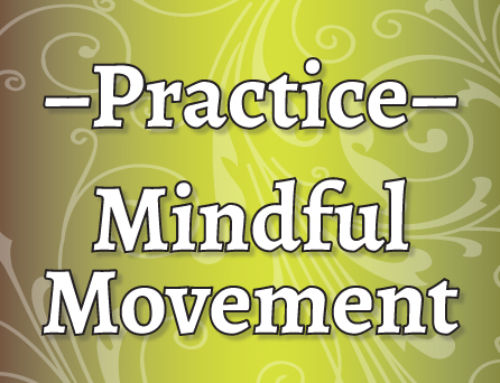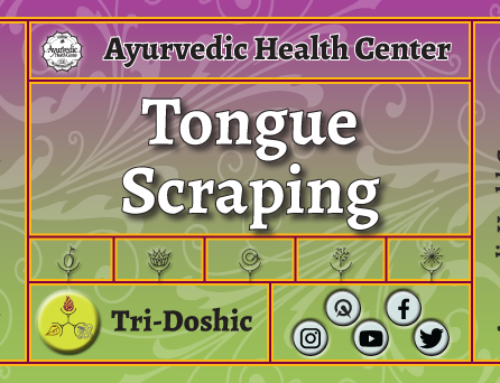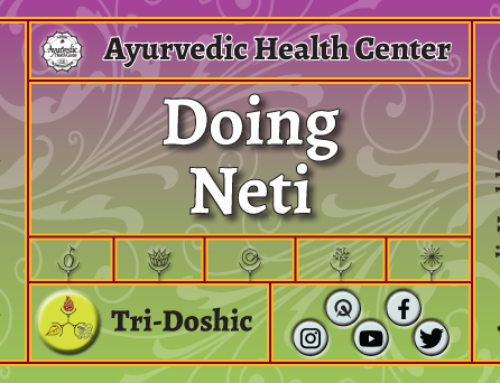This is a deceptively simple question. Ask any one person what their definition of health is, and they will have a unique answer, if they even really have one at all. Most people's responses tend to be vague and unfocused.
- "Oh, you know. Having a good day."
- "Not having to miss work because of being sick."
- "Not getting cancer."
- "Maybe my back could stop hurting."
- "Being able to eat whatever I want without gaining weight."
Our Western medical system doesn't offer much in the way of a definition of health. It is a system built up around managing symptoms that has a very mechanistic — yet oddly mysterious — view of the body: valves, tubes, parts, organs, neurotransmitters. It's as if the body is a large factory with an advanced transport mechanism and areas of specialized activities, most of which is too complex for us mere mortals to comprehend. When things are going right, we don't notice. When things go wrong, it seems catastrophic, and the available options are to: suppress the symptoms (take pharmaceuticals), attack the offending region (chemotherapy, radiation), slice and dice (surgery), or ignore what's going on and hope for the best.
People grow so accustomed to long-standing imbalance, pain, or illness that the issue fades into the background of awareness and is just something to be tolerated, to be lived with. It's almost as if it's forgotten (except for those pesky reminders). A "good day" is one where the symptoms are minimal (rather than an experience of robust health), and a "bad day" occurs too often and is usually very limiting.
Fortunately, there is a different way of looking at — and tending to — health. Ancient traditions have long known that all systems have an inherent balance and order. When this is maintained, all is well; when it isn't, there is trouble. Concepts of illness and disease don't exist in traditional healing systems; deficient health is understood as a state of imbalance while health is a state of balance. States of imbalance are temporary — and are really just communication devices. An aspect of the body or being is sending a message that something isn't right. Decode the message, and you know what to do.
An simple example: if you spend too much time in the summer sun, you are likely to get a sunburn. That sunburn (the imbalance) is a result of too much direct heat. Sunburns are hot, red, and painful, as you would expect. If you expose your skin to more heat, the sunburn will get worse and the imbalance would increase. Expose your skin to cooling influences, however, and balance will be restored as the body releases the excess heat and the skin heals.
Let me Introduce you to Ayurveda
Ayurveda is a system of knowledge that has existed for 5,000+ years. It is a collection of wisdom from groups of people who populated the Indian subcontinent in ancient times. As with all traditional forms of medicine, Ayurveda has a long and successful history of working with local resources to promote health and balance — and to reverse states of imbalance. The entire bounty of the natural world has been thoroughly studied and applied in the Ayurvedic system: plants, animals, water, minerals, foods, metals, etc. What Ayurveda works with today is a highly refined system of knowledge that transcends culture, fad, political interests, current socio-economic trends, and the agendas of big business.
Ayurveda's foundational principles are based solely within the rhythms and patterns of nature, are of the natural world. These principles remain constant over space and time and can be successfully applied to any situation. This gives Ayurveda tremendous flexibility — and keeps it relevant. Ayurveda can be applied with what you have in your natural environment, even if you live far away from India.
"Ayurveda" is a Sanskrit word that means "the science of life." This refers to both a long life and a healthy life — quality and quantity. Thus, Ayurveda is systematized knowledge (ie: a set of guidelines) that we can apply in our own lives to keep ourselves in a balanced state, nourish our body's tissues, ensure the removal of wastes and toxins, support optimal metabolism, cultivate a calm and peaceful mental outlook, and be certain of our place within a larger context.
Ayurvedic Definition of Health
Specifically, Ayurveda considers health to be a state of perfect balance between:
- the three doshas (Vata, Pitta, and Kapha) within your individual constitution
- properly formed and well-functioning bodily tissues
- proper elimination of waste products
- optimally functioning digestive fire/metabolism
- a content mental-emotional state
- self-confidence (ie: knowing who you are)
This list does a nice job of illustrating that there are many dynamic factors that contribute to health. I would also add that an individual's health is also intrinsically interwoven with the overall health of the surrounding environment and ecosystem — ie: animals, plants, soil, water, and air. Any pollution or toxicity that is present in the environment is a very real factor. Simply put, health is a nuanced and multi-faceted state.
- We need optimal nutrition to nourish the tissues of our body. So, the quality of the food that we eat matters.
- We also need to move metabolic wastes out of our body. So, peeing and pooping matter.
- Having a consistent and well-functioning metabolism ensures that we are able to transform raw nutritional materials in to the stuff that keeps us living (neurotransmitters, digestive enzymes, immune cells). So, having a strong capacity to digest food matters.
- The tie-in of the mental-emotional state with the physical state may be new to Westerners, but anyone who has ever been sick knows that we become irritable creatures who are probably best left alone. Likewise, when we are feeling stressed, our bodies show the evidence (hello, tight muscles!). The physical body and mental-emotional body are inextricably linked and influence each other constantly. Influence one, and you influence each other.
- It's also vital to have a sense of the individual self as a unique being within the context of a community. We all come from a certain place and culture. We "see" ourselves in comparison to our families and friends. We form our identity around shared interests and activities. We develop skill at certain kinds of work and tasks. We engage with certain types of people (and not others). These all give us our sense of self, placing us within the larger human context. If you've ever felt "out of place," you know how uncomfortable that is. The more we "know" ourselves and resonate within our location, the more content we can be.
- Once we expand this sense of self outward to the cosmos, we develop ourselves in the spiritual realm, within something larger. We find ourselves exploring what our purpose is. This is vital exploration for all of us. Life is precious. How can we best put it to use? And what is it all for? If you've ever felt like you didn't have a reason to exist, then you know how difficult this is. It causes a pain that is different from any physical pain and is difficult to put into words.
As you might now see, all of these intangible influences have very real impacts on our overall health and wellness. I guess another way of saying it is that both the micro (say, cells) and the macro (say, our outlook on life) need to be functioning well for there to be a state of health.
Of course, each of the items can (and do!) shift and change over time. Sometimes it feels like everything in my body is ticking right along, and I feel invincible. Other sometimes I feel like my body is a hot mess and in need of some serious support before I can be of any use. Health is a state of balance that has to be actively maintained. It is a daily practice of tending to what goes in (food, drink, experiences) and what goes out (pee, poop, energy) along with cultivating as much equanimity as possible. The times in my life when I paid attention to what my body was doing — and took care of it — I had better health. The times when I thought caring for my self was unimportant were the times when I needed some drastic interventions to get me back on track.
Health as an Active Practice
I used to view health as something static, fixed. Either you "had" good health or you didn't, and there was nothing to be done either way. Fortunately, I have gotten more wise and moved beyond this concept. I now know that health is highly changeable, influence-able, and adaptable. We are resilient creatures with a large capacity for change.
In a larger sense, health is a sense of being whole. I now know there is a surprising amount of strength that I derive from being healthy; it feels powerful and capable and generative. Rather than health seeming to be random or at the whim of the gods, you can make active choices to support your health. Doing so is actually an act of free will, a form of empowerment. Over time you learn to interpret your body's cues and signals — and then make smarter decisions.
Understanding the importance of linking in with nature's rhythms seems awkward at first, but then it quickly makes easy sense and becomes second-nature and intuitive. Be active when there is light, and restore when it's dark. Eat when you're hungry and drink when you're thirsty. This is stuff that is accessible to all of us, and we can be active participants in the creation of our state of health. Once we make changes, it is amazing how quickly an imbalance can be reversed and health can rebound. I have come to view health as a journey rather than a destination. My body is no longer mysterious to me, and I am very clear about my personal definition of — and experience of — health.
